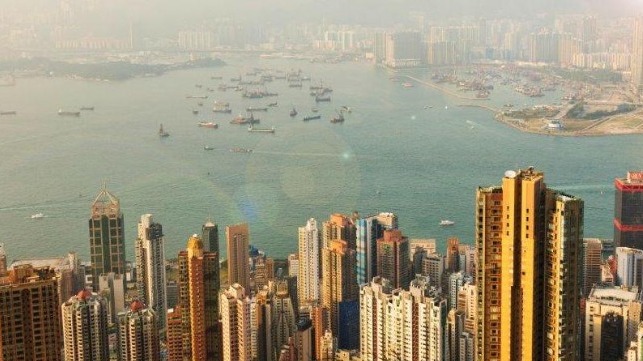Op-Ed: A New Blend of Skills for Ship Agents of the Future

 Even as the maritime industry continues to reel from the upheaval and long-term economic impact of COVID-19, serious thought is being given to the changes it has brought, and how the most profoundly affected sectors of the industry must adapt, consolidate and evolve to survive and thrive beyond the pandemic.
Even as the maritime industry continues to reel from the upheaval and long-term economic impact of COVID-19, serious thought is being given to the changes it has brought, and how the most profoundly affected sectors of the industry must adapt, consolidate and evolve to survive and thrive beyond the pandemic.
2020 is unlikely to be forgotten in a hurry. It will go down in history as a defining year for our industry. Even before the coronavirus emerged to halt and throw obstacles in the way of crew changes, ship repairs and other operational processes, we were already coming to terms with the changes to the fuels market, brought by the implementation of the global sulfur cap in January, as well as general disruption to global supply chains. And who knows what else the year has in store for us?
Navigating whatever future awaits us will require fresh thinking and unprecedented collaboration between owners, operators, ports and suppliers. Businesses will no longer be able to rely on tried and tested strategies. Indeed, they will be forced to re-assess and recalibrate beyond focusing on answering short-term questions and challenges. But this is no time for corporate myopia – as well as the immediate challenges we face, we must also keep the medium and long-term in sharp focus.
Industry discourse is already looking beyond 2020. Many are seeing the disruption it has brought as an opportunity to ‘reset’ and forge new priorities in terms of decarbonization, safety, risk, collaboration and innovation.
Claiming a voice
Ship agents must claim a voice in that conversation. They play a role in international trade and supply chains and can be vulnerable to the disruption and changes afoot in the industry.
Throughout its history of more than 60 years, the GAC Group has had a strong track record of continuously adapting to the ebb and flow of changes affecting the markets we serve – and believe me, there has been a lot of change in the past six decades. But perhaps 2020 has brought the greatest concentration of industry-rocking events, including plummeting oil prices and trade dislocation associated with COVID-19.
Another challenge ship agents face is the fact that they operate in an especially fragmented market, with many players locked in a race to the bottom in terms of price – sometimes, sadly, at the cost of sacrificed standards.
But rather than seeing this as an obstacle, it can present proactive agents with a real opportunity to add value and augment their traditional role as a "joiner of dots," even if those dots are becoming more fragmented and influenced by wider trends. Crew changes are a clear case, from chartering flights to using rigid inflatable boats and modified coaches, extraordinary measures being taken by ship agents to bring crew home amidst rapidly changing situations on the ground are now the norm.
Shipping’s technology push means that many of these "dots" to be joined are now data-based insights. Collecting and understanding this data goldmine is key to the success of ship agencies in recent years; flexibility to add new and more diverse sources of information to planning and operations is a must to keep ship agency up with the digital curve.
This is one aspect that seems "2020 proof." The disruption we’re now seeing will not derail ‘big data’ or the management of data, but rather underline its potential to those with the vision to see it.
In the short- to medium-term, customers may be willing to accept the productivity benefits of data in return for economies and cost reductions. But there is a danger of this prompting a trade-off in terms of the quality of service, with customers accepting greater automation and cutbacks in actual human support.
Human ship agents play a vital monitoring role, before and during a port call, taking the necessary actions to avoid disruption to operations and trade. Technology will never fully be able to solve problems and bring efficiencies in emergent situations. That is where people make the difference. At the ship’s side, agents’ own eyes and ears bear witness to events and any issues that arise, bringing experience and perspective to assessing the situation. Technology can never replace that.
A new reliance
Many of the industry’s new trends and challenges will amplify the presence and value of human insight. There may be more reliance on ship agents, particularly as long-standing human capital or expertise in the wider sector ebbs away.
The trend of outsourcing in our market is particularly relevant given current cost constraints. Third-party knowledge will be vital, and that is why service providers like ship agents are likely to adopt a more blended operation between technology and people. However, it is critical that we ensure that there is not an overreliance on either.
In this new model, the ship agent leverages technology to ensure that operations are timed optimally and performed efficiently, and that relevant information is forwarded on to the right parties, reducing the burden on masters, owners and operators.
Technology is incorporated by understanding, processing and packaging high quality data in ways that clients, and the wider market, can use – increasingly on a real time basis. By combining these insights with local and emergent knowledge we can forge a new operational model that uses the best possible information and keeps service standards high.
At GAC, we have embraced technology. However, we do not consider it the solution to all problems and bringer of efficiencies in emerging situations on its own. To deliver optimum results, it needs to be used hand in hand with the human skills and experience of a good ship agent.
The message for ship agents is to not to be blinded by the fundamental changes to their business model coming as a result of current disruption. They must not lose sight of the long view. If navigated properly, even while sometimes struggling to deliver amidst this current disruption, the sector will set itself up for the future with the right mix of human interaction and technological efficiency.
Neil Godfrey is group commercial director for shipping at GAC.
The opinions expressed herein are the author's and not necessarily those of The Maritime Executive.
